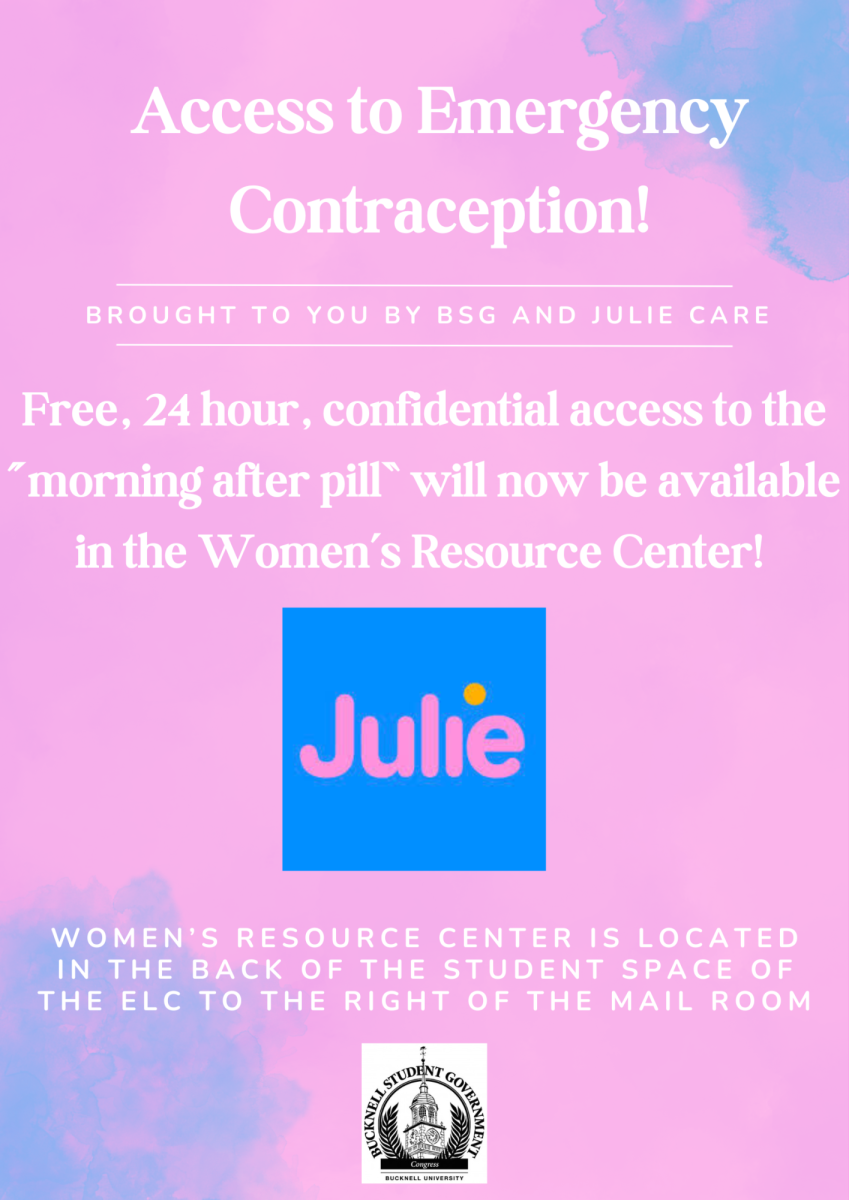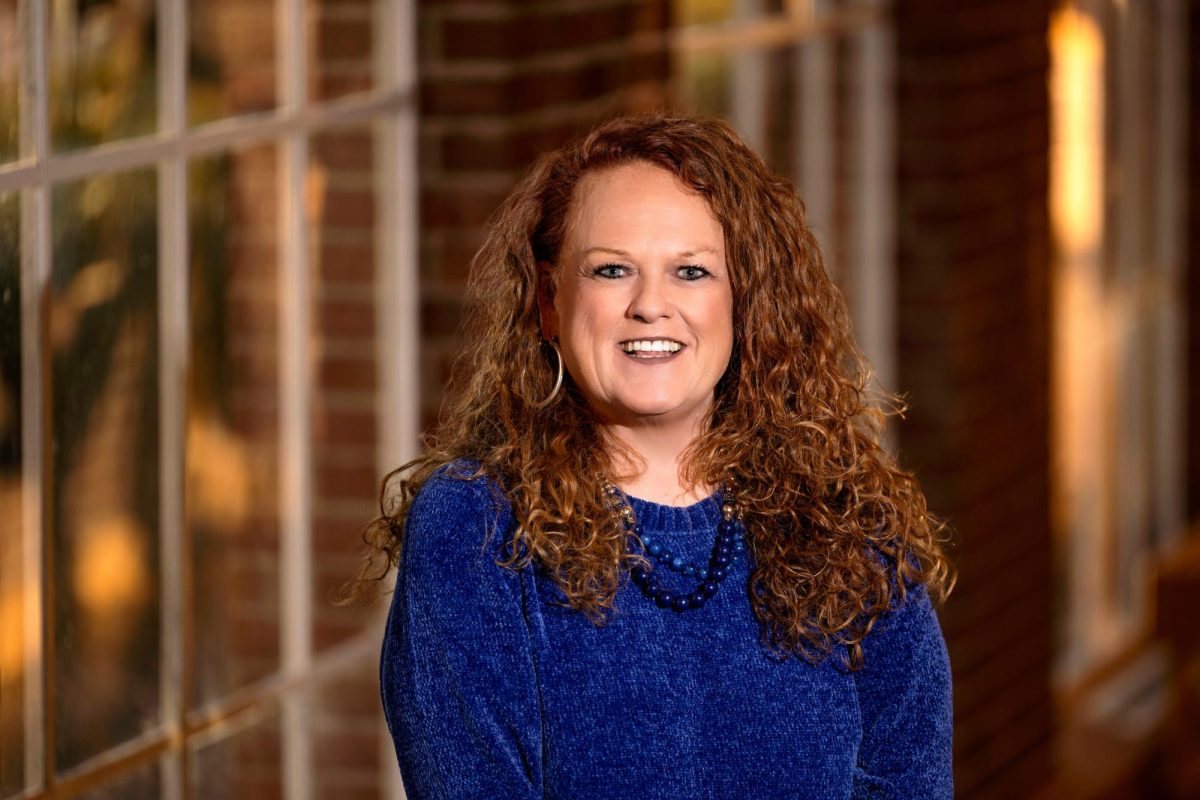As the semester starts to wrap up, “The Bucknellian” sat down once more with Eliza Morris ’26, Vice President of Administration of Bucknell Student Government, to follow up on the implementation of free, accessible emergency contraception on campus.
- For those Bucknellians who missed it the first time around, what is Julie Care? Where is it located at Bucknell, and why did BSG implement it?
Julie Care is “a progestin‑only emergency contraception product that helps prevent pregnancy before it starts when taken within 72 hours after unprotected sex,” as stated on the juliecare.co website. If you are familiar with “Plan B,” that is what Julie Care is, but a different, just as effective brand. Throughout my time here at Bucknell, I’ve seen an immense number of students pushing for free, 24/7 anonymous access to emergency contraception instead of having to go to Student Health for a consultation and pay a small price or paying the full store price at CVS. Everyone deserves to have access to feminine health care without having to worry about financial struggles or the judgment of their peers. Because of that, this product is now available to all, free of charge, and free of consultation, at any time in the Women’s Resource Center and during open hours at Student Health.
- When was Julie Care access “installed”?
Julie Care access was put into place at the Women’s Resource Center at the beginning of this academic year.
- What were your/BSG’s hopes for its usage (in terms of statistics or just general community aid)?
The hope for this implementation was that people would be able to access Julie Care whenever needed! We didn’t really have any hope for the amount of usage Julie would get, given that there can be some harmful side effects if Julie is overused, but we just wanted to make sure it is always present and accessible for those who need it.
- As of now, what are the statistics for its usage looking like?
The inventory and restock of Julie in the Women’s Resource Center is taken every day and the goal is to have 20-25 boxes in the room at all times. On average, about 25 boxes are taken per week—between one and 13 are taken per day, with an all-time high of 21 being taken on Nov. 7 of this year. We assumed this uptick could be a result of people’s concerns following the outcome of the U.S. Presidential election. In August, a total of eight boxes were taken from the WRC and 11 boxes were taken from Student Health. In September, 168 boxes were taken from the WRC and 111 boxes were taken from Student Health. In October, 94 boxes were taken from the WRC and 58 boxes were taken from Student Health. Overall, we’ve seen some pretty consistent month-to-month engagement.
- Why was it important to keep usage anonymous?
Sex is very stigmatized in society, and even more so in a concentrated college campus setting, which can cause people to feel targeted and embarrassed if they think people may be aware of their private life. Emergency contraception is a personal thing that only concerns the individual choosing to use it, so it’s important that people’s privacy is protected. Additionally, keeping usage anonymous ensures that people are not shying away from using the product if they need it.
- What are your hopes and plans for Julie Care moving forward?
I hope that Bucknell is able to continue giving out Julie to students, and that this right remains for the foreseeable future. This is a huge step forward for Bucknell and women’s access to sexual care, and it is essential that this remains and grows. I hope more students become aware of this resource at Bucknell and feel comfortable utilizing it. Lastly, I hope that we can eventually have Julie Care given out via vending machine in a safe, private space on campus.
- Anything else you’d like the Bucknell student population to know?
Bucknell Student Government is here for you! Please never hesitate to reach out with questions or concerns to bsg@bucknell.edu, visit our website at https://bsg.blogs.bucknell.edu/, and follow us on Instagram @bucknellstudentgov.
BSG wants to thank Student Health for their willingness to collaborate and progress emergency contraception access on campus.
























